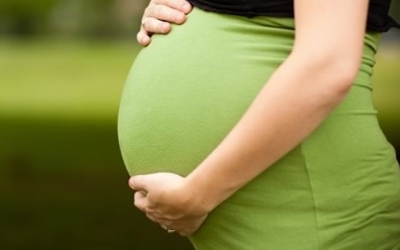- Latest news▼
-
12:16, April 19 Scientists grow human mini-lungs in lab

-
10:23, April 19 JAMA Oncology: Urine test can help rule out high-grade prostate cancer with almost 100% accuracy, study shows

-
18:00, April 18 Daily Mail: Elderly woman in China gets infected with brain-eating amoeba

-
14:19, April 18 Obesity: exercising before breakfast helps you lose weight faster

-
10:42, April 18 The Conversation: childhood trauma can cause pathological hoarding

-
08:37, April 18 Daily Mail: Satiating food reduces cravings for sweets, nutritionist says

-
18:22, April 17 First Armenian-German Conference entitled “Heart Failure Spring School”

-
08:38, April 17 Why do kids usually recover from COVID-19 more easily than adults?

-
14:37, April 16 Daily Mail: intermittent fasting is not suitable for children and women before their periods

-
16:41, April 15 Cell: in carriers of defective BRCA2 gene, sugar consumption increases cancer risk

-
15:04, April 15 305 cases of measles recorded in Armenia so far in 2024

-
14:38, April 15 Food and Environmental Virology: tea contributes to effective coronavirus control

-
12:41, April 15 Daily Mail: vitamin A, B3 and E supplements can be dangerous

-
10:56, April 15 Diabetes Care: evening physical activity is good for the heart

-
08:27, April 15 Women are more susceptible to blood loss and death during bypass surgery than men, researchers say

All materials
Cancer treatment during pregnancy DOESN'T harm an unborn baby

Receiving cancer treatment while pregnant does not result in health problems for unborn children, researchers have found.
Neither chemotherapy, radiotherapy nor surgery harmed the patients’ babies, according to a study published today.
The researchers said that women who are diagnosed with cancer while pregnant should not delay their treatment.
Professor Frédéric Amant, presenting his results at the European Cancer Congress in Vienna, said: ‘Our results show that fear of cancer treatment is no reason to terminate a pregnancy, that maternal treatment should not be delayed and that chemotherapy can be given.
‘The study also shows that children suffer more from prematurity than from chemotherapy, so avoiding prematurity is more important than avoiding chemotherapy.’
His team examined 129 children born after exposure to cancer treatment in the womb.
The data, published in the New England Journal of Medicine, found that the babies - aged 18 months and then three years when they were tested - had developed normally when compared to children whose mothers had not had cancer.
Professor Amant, of University Hospitals Leuven in Belgium, said: ‘Compared to the control group of children, we found no significant differences in mental development among children exposed to chemotherapy, radiotherapy, surgery alone or no treatment.
‘Nor was the number of chemotherapy cycles during pregnancy, which ranged from one to ten, related to the outcome of the children.’
The most common cancers among the mothers were breast and haematological cancers, such as leukaemia and lymphoma.
Some 69 per cent of the children had been exposed to chemotherapy before birth, 3.1 per cent radiotherapy, 5.4 per cent to both chemo and radiotherapy, 10.1 per cent to surgery alone.
The team also found that premature birth - a major cause of development problems - was more frequent among children born to mothers with cancer, regardless of whether or not they received treatment.
Prof Amant said: ‘In most cases, they were born prematurely due to a medical decision to induce preterm so as to continue cancer treatment after the delivery.’
But he warned: ‘Our data include many types of chemotherapy, but we cannot guarantee that all types of chemotherapy are safe.
‘We need to look at larger numbers of children and larger numbers exposed to each drug in order to be able to document the potential effects of individual drugs.’
Martin Ledwick, head information nurse at Cancer Research UK, said: ‘Although the results of the study seem encouraging, it’s important to acknowledge that a range of chemotherapy drugs and other treatments were used on the mothers so it may be hard to draw firm conclusions.
‘It’s already known that some breast cancer drugs may be safe to give after the first three months of pregnancy but it’s unclear from the study which women fitted into this category.’
Follow NEWS.am Medicine on Facebook and Twitter
- Video
- Event calendar
- Archive
- Most read
month
week
day
- WHO: Nigeria pioneers revolutionary meningitis vaccine 1210
- One-third of women experience menstruation-related migraines, most often during premenopause - study 1204
- Food and Environmental Virology: tea contributes to effective coronavirus control 1126
- Daily Mail: vitamin A, B3 and E supplements can be dangerous 1123
- Cell: in carriers of defective BRCA2 gene, sugar consumption increases cancer risk 1088
- 305 cases of measles recorded in Armenia so far in 2024 1082
- Women are more susceptible to blood loss and death during bypass surgery than men, researchers say 983
- Diabetes Care: evening physical activity is good for the heart 937
- Daily Mail: intermittent fasting is not suitable for children and women before their periods 921
- First Armenian-German Conference entitled “Heart Failure Spring School” 685
- Obesity: exercising before breakfast helps you lose weight faster 590
- The Conversation: childhood trauma can cause pathological hoarding 582
- Daily Mail: Elderly woman in China gets infected with brain-eating amoeba 580
- Why do kids usually recover from COVID-19 more easily than adults? 580
- Daily Mail: Satiating food reduces cravings for sweets, nutritionist says 544
- Find us on Facebook
- Poll





